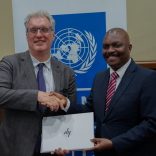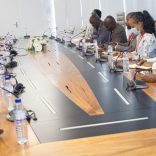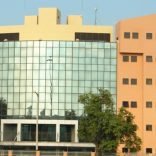Mozambique: President Chapo to meet US Under Secretary Elbridge Colby - Notícias
CIP Mozambique Elections: Observers confirm widespread ballot box stuffing; and fake observers in Zambézia

FILE - For illustration purposes only [Screen grab: Adriano Nuvunga/Facebook]
Ballot box stuffing is not new, but it was much more brazen and open in this election compared to past elections. EU observers actually witnessed ballot box stuffing in six provinces, chief observer Laura Ballarin Cereza told a press conference yesterday (11 October).
And national observers saw ballot box stuffing in 10% of polling stations visited in Zambézia, which again is the worst province. Observers in Zambézia reported many presiding officers with piles of ballot papers already torn out of the book of ballots, ready to hand to selected people who will fill in several ballots for Frelimo and then fold them together. One presiding office had 38 ballots in front of him and another had 45. These were handed out to pre-arranged people, some who were being paid 200 Mt ($3).
In one particularly obvious example, the presiding officer gave three extra ballot papers to a voter who then went to the voting booth, but the voter then returned to the presiding officer to ask a further extra ballot paper. All were put into the ballot boxes. In another case, the president was told to give extra ballot papers to a school director who is senior in the party. But in another polling station, a school director complained when they were not given enough extra ballot papers. However, not all presidents got it right; in one polling station angry voters tore up the extra ballot papers they were given.
And observers reported voters with briefcases and telephones going into the voting booths. It is said that the briefcases contain extra ballot papers and the phone is to take a picture of the ballot papers, so that the person can be paid. To prevent this, cellphones are not allowed in the voting booth, but the staff never objects.
All these cases were seen and reported by observers. There is no longer any attempt to keep ballot box stuffing secret. In three polling stations where the opposition delegates objected, the police were called and the delegates decided not to continue their protest.
- And fake observers in Zambézia
In the past few elections Frelimo has registered fake observers, mostly from Frelimo’s Mozambican Youth Organisation (Organização da Juventude Moçambicana, OJM). They register as members of an unknown youth group, CNJ (Comissão Nacional da Juventude). In previous elections the Zambezia provincial election commission has given credentials to more than 1000 CNJ and other Frelimo members, while refusing credentials to real observers. Wearing red bands or clothes, they are clearly linked to Frelimo.
They have two roles. The first is ballot box stuffing. Observers and journalists can vote at any polling station because they are working away from their own area (known as the “special vote”), but like other voters they must dip their finger into the indelible ink so they do not vote again. But in Zambézia and other provinces, Frelimo nominated election officials control the ink bottle and do not require CNJ observers to ink their fingers, allowing the herd to move quickly to another polling station and vote again, often a dozen or more times. Sometimes they have cars waiting for them to take them to the next polling centre. Sometimes the two tasks are combined; in one polling station the CNJ observers were each given five ballot papers.
The herds of Frelimo observers also serve to control the Frelimo-nominated polling station staff. They can be quite intimidating in groups. They often meet with and give instructions to polling station presidents. In Sofala, two “observers” arrived, took the president outside, and he never returned to the polling station.












Leave a Reply
Be the First to Comment!
You must be logged in to post a comment.
You must be logged in to post a comment.